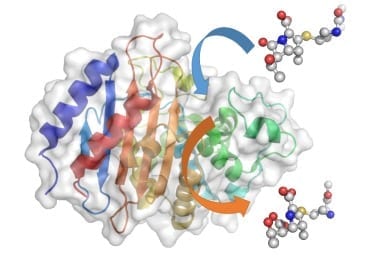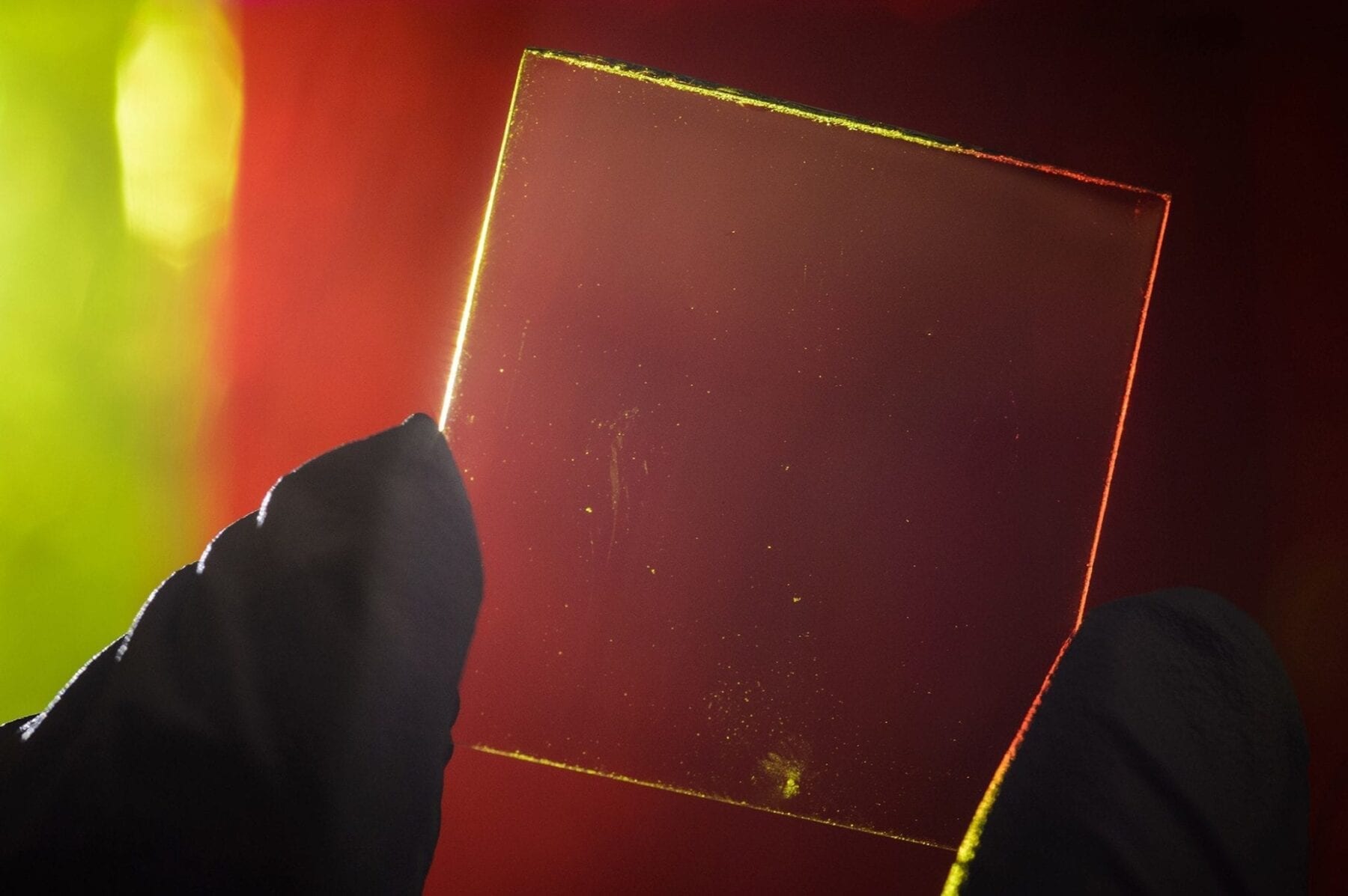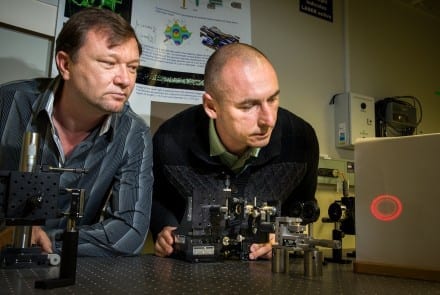
Scientists have used computer simulations to show how bacteria are able to destroy antibiotics – a breakthrough which will help develop drugs which can effectively tackle infections in the future.
Researchers at the University of Bristol focused on the role of enzymes in the bacteria, which split the structure of the antibiotic and stop it working, making the bacteria resistant.
The new findings, published in Chemical Communications, show that it’s possible to test how enzymes react to certain antibiotics.
It’s hoped this insight will help scientists to develop new antibiotics with a much lower risk of resistance, and to choose the best medicines for specific outbreaks.
Using a Nobel Prize-winning technique called QM/MM – quantum mechanics/molecular mechanics simulations – the Bristol research team were able to gain a molecular-level insight into how enzymes called ‘beta-lactamases’ react to antibiotics.
Researchers specifically want to understand the growing resistance to carbapenems, which are known as the ‘last resort’ antibiotics for many bacterial infections and super bugs such as E. coli.
Resistance to carbapenems makes some bacterial infections untreatable, resulting in minor infections becoming very dangerous and potentially deadly.
The Latest on: Antibiotics
[google_news title=”” keyword=”antibiotics” num_posts=”10″ blurb_length=”0″ show_thumb=”left”]
via Google News
The Latest on: Antibiotics
- Quality improvement effort linked to more appropriate antibiotics for pediatric infectionson April 30, 2024 at 1:12 pm
The multisite collaborative was associated with improved antibiotic prescribing for pediatirc pneumonia, skin and soft tissue infections, and urinary tract infections ...
- Antibacterial Substance From Bacteria Could Provide Alternative to Antibioticson April 30, 2024 at 1:38 am
Many bacteria produce substances to gain an advantage over competitors in their highly competitive natural environment. Researchers at the University Hospital Bonn (UKB), the University of Bonn and ...
- Possible alternative to antibiotics produced by bacteriaon April 29, 2024 at 3:21 pm
Many bacteria produce substances to gain an advantage over competitors in their highly competitive natural environment. Researchers have discovered a new so-called lantibiotic, namely epilancin A37.
- Swedish-led team discovers potential new class of antibiotics, hope for AMR fighton April 29, 2024 at 11:22 am
A new antibiotic against gram-negative bacteria hasn’t been developed since the 1970s. Now, a European research team led by Swedish scientists has discovered multi-drug-resistant bug-killing compounds ...
- Antimicrobial resistance crisis: 'Antibiotics are not magic bullets'on April 29, 2024 at 10:26 am
Science X is a network of high quality websites with most complete and comprehensive daily coverage of the full sweep of science, technology, and medicine news ...
- Study finds resistance to critically important antibiotics in uncooked meat sold for human and animal consumptionon April 29, 2024 at 8:58 am
New research presented at the ESCMID Global Congress (formerly ECCMID) in Barcelona, Spain (27–30 April) has found substantial levels of resistance to critically-important antibiotics in meat sold for ...
- No Antibiotics Needed – Revolutionary Chronic Wound Treatment Could Help Millionson April 28, 2024 at 1:29 am
An international team of scientists has developed a new treatment for chronic wounds that uses ionized gas to activate a wound dressing, without the need for antibiotics. The treatment involves the pl ...
- WHO: Antibiotics Overused in COVID-19 Patients During Pandemicon April 26, 2024 at 8:50 am
The overuse of antibiotics could have exacerbated the spread of antimicrobial resistance, according to the World Health Organization.
- How AI hallucinations could help create life-saving antibioticson April 24, 2024 at 5:42 am
Generative artificial intelligence (AI) models often hallucinate and invent information that isn't factual or can't be cited from source material. This behavior is usually a weakness, especially given ...
- Your doctor is prescribing antibiotics that won't help – and may harmon April 23, 2024 at 1:30 am
US doctors haven’t been following the rules when it comes to prescribing antibiotics, according to new research. Despite the rise in antibiotic resistance, between 2017 and 2021 more than a quarter of ...
via Bing News










